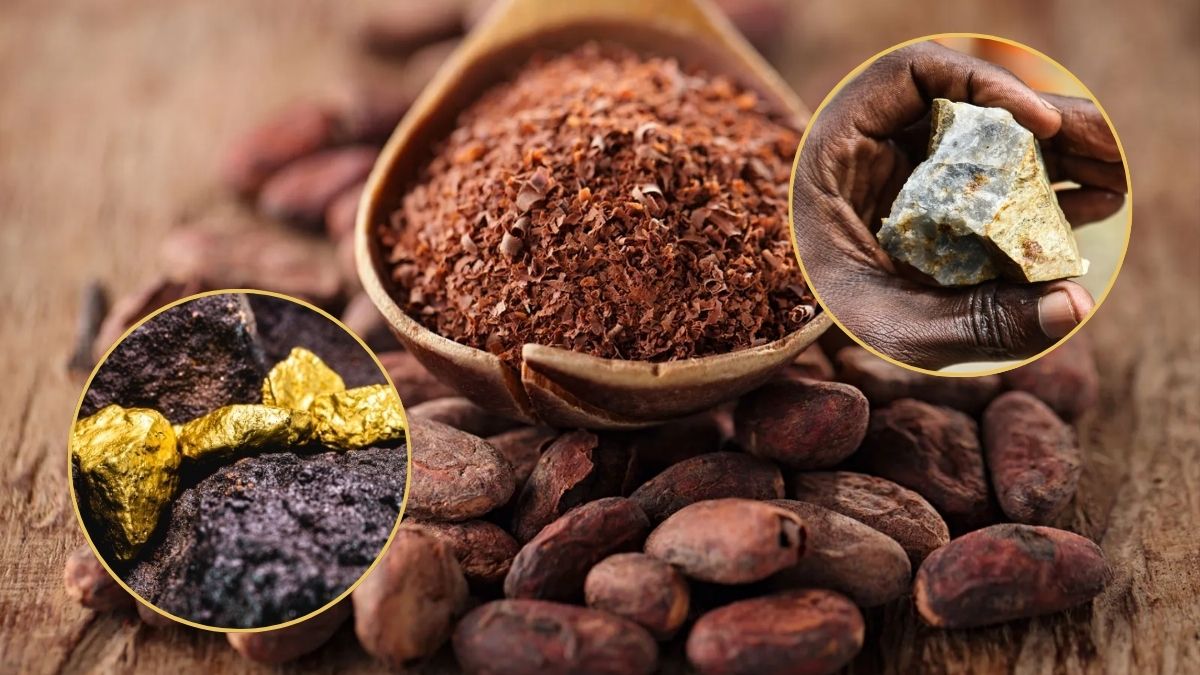News in Brief:
– Ivory Coast, the world’s top cocoa producer, is rapidly expanding its mining sector, aiming to become a resource-rich nation.
– This shift, however, raises concerns about a potential decline in cocoa production due to factors like labor competition and land use changes.
The world’s leading cocoa producer, Ivory Coast, is undergoing a dramatic economic transformation. The nation is rapidly ramping up its mining sector, aiming to transition from an agricultural powerhouse to a resource-rich industrial giant. However, this shift raises concerns about the future of the global cocoa supply chain.
From fields of cocoa to mines of gold: a shifting focus
Essentially, for decades, cocoa has been the lifeblood of the Ivorian economy. However, the government has set its sights on the riches beneath the surface. Gold production has skyrocketed in recent years, fueled by major new discoveries. The government aims to make mining the second-largest driver of economic growth, with a target of contributing 8% of GDP by 2030.
This ambition extends beyond gold, with Ivory Coast boasting reserves of diamonds, manganese, and other minerals.
Three significant oil discoveries between September 2021 and February 2024, estimated to hold a combined reserve of 6 billion barrels, have ignited hopes of the nation becoming a net oil exporter by the end of the decade. The first producing field, Baleine, operated by Eni, aims to reach a daily output of 200,000 barrels of oil and 200 million cubic feet of gas by 2026.
This, along with a booming mining sector with tripled permits and projects since 2012, has the potential to significantly boost the country’s revenue and potentially grant it membership in OPEC.
The potential price of progress
However, while diversification offers economic benefits, the potential consequences for cocoa are worrisome. A shift towards mining could lead to a decline in cocoa production through several means.
- Labour Lure: Mining offers the allure of potentially higher wages compared to traditional agriculture, potentially enticing farmers, especially younger generations, to abandon their fields.
- Land Loss: Large-scale mining operations require significant land for extraction and processing facilities, potentially leading to the conversion of cocoa farms into mines.
- Environmental Impact: Irresponsible mining practices can have a detrimental impact on the environment, disrupting ecosystems crucial for cocoa production, such as providing shade and habitat for pollinators. Water pollution from mining can also contaminate water sources used for irrigation.
Ripples beyond the borders: impact on neighbours and the global market
Meantime, the ramifications of this shift extend beyond Ivory Coast’s borders. Neighbouring countries, especially those who are trading partners in the cocoa business, face uncertainty.
A decline in Ivorian cocoa production could disrupt the global cocoa market, potentially leading to higher prices for cocoa beans in the short term.
However, a long-term decrease in supply could also lead to price volatility, impacting chocolate companies who rely on a steady flow of cocoa beans.
Furthermore, environmental degradation from mining in Ivory Coast can have transboundary effects, impacting air and water quality in neighboring countries.
Ivory Coast (also known as Côte d’Ivoire) is the world’s largest producer of cocoa beans, supplying around 40-45% of the global crop. It is a major source of income for the country, accounting for roughly 40% of its national export earnings.
The vast majority of cocoa production comes from smallholder farmers and this coming change could significantly impact rural dwellers. The industry has braced challenges like fluctuating weather patterns, vulnerability to pests and diseases, and concerns about fair prices for farmers.



